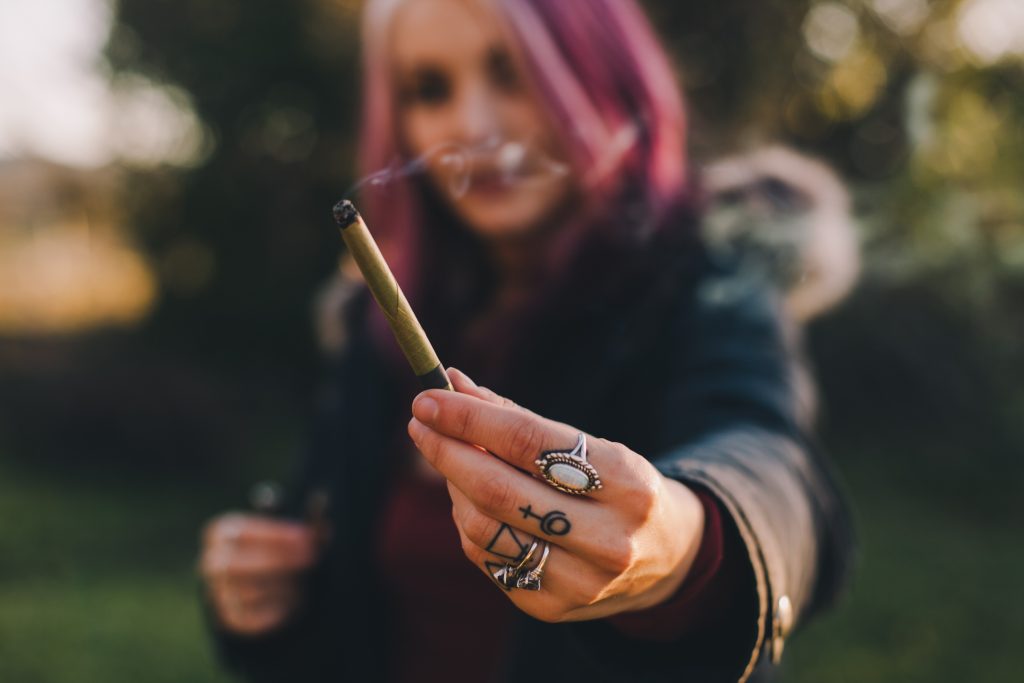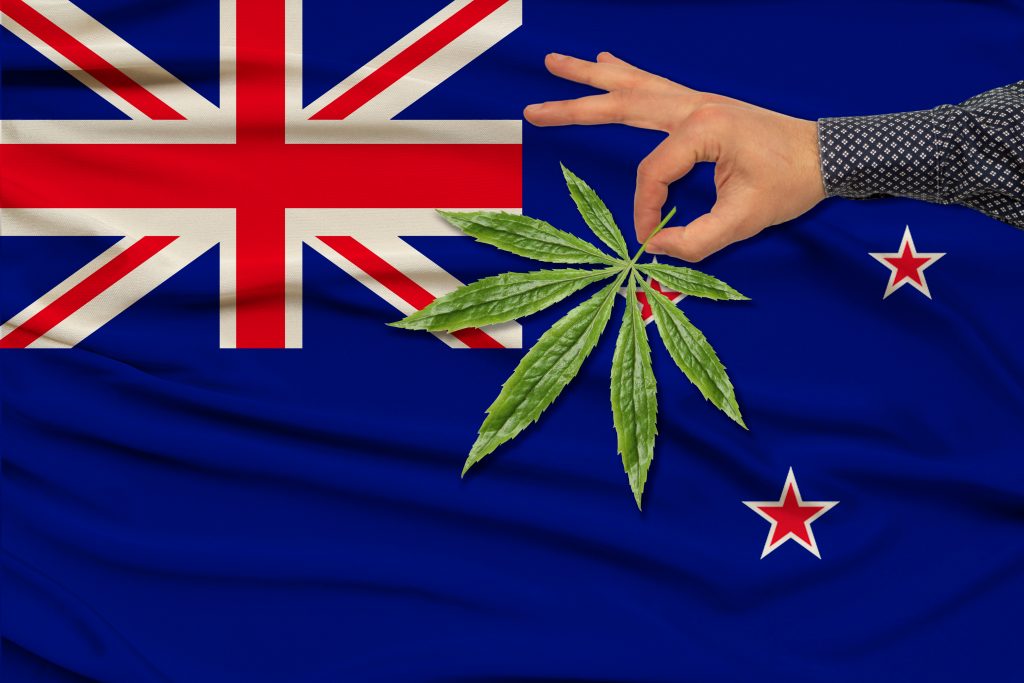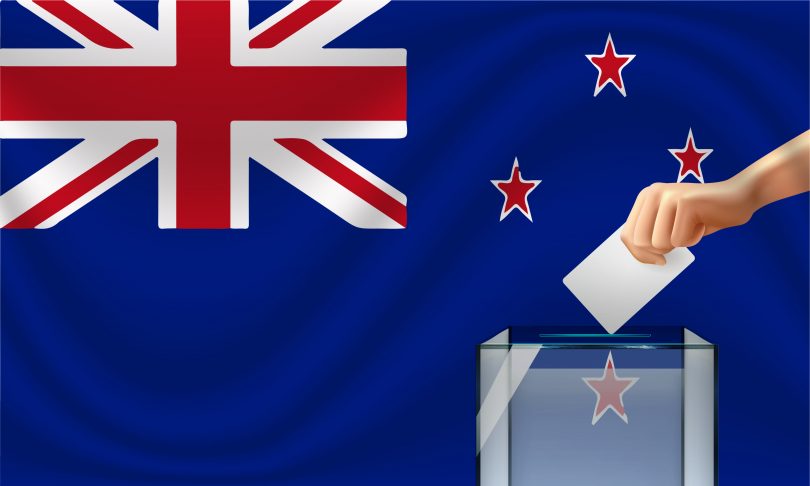For New Zealand, the big story in the past several months was whether the people of the country would vote to legalize recreational cannabis through a non-binding referendum. As it turns out, the timing just wasn’t right, and New Zealand voted no to recreational cannabis.
In what many thought would be a turning point for New Zealand cannabis culture, the people of the country decided they just weren’t ready for legalized recreational cannabis.
The world of legal cannabis is constantly moving and changing.
Sign up below to the CBD TESTERS WEEKLY to keep up-to-date with all the latest news.
New Zealand and cannabis
In New Zealand, cannabis is considered a controlled substance, and as such, both possessing and using it are illegal. This is covered in the Misuse of Drugs Act, 1975. Cannabis is scheduled as a Class B drug meaning its associated with having a high risk of harm, and therefore, courts are forced to give custodial sentences to offenders. Sale and supply crimes are also predictably illegal, but are not differentiated from use and possession crimes so the penalties are the same. Trafficking is taken less lightly, and offenders caught importing and exporting can find themselves in prison for up to seven years. Cultivation is also illegal, and also can incur up to seven years in prison.

As far as medical marijuana, as of 2018 the laws have gotten much looser. Since the reform, some of the updates are that now terminally ill patients have better access to cannabis medicines (even without a prescription), CBD has been taken off the list of controlled substances, making it available to people who need it, and new regulation-making ability was put forth for quality control standards for medicinal cannabis products manufactured locally, or imported to the country.
When simply looking at drug laws, New Zealand isn’t the most lax, however, this doesn’t mean there isn’t a smoking culture in New Zealand, or a push for change. In 2017, the government of New Zealand stated it would hold a non-binding referendum in 2020 to assess the general feeling of the public towards cannabis decriminalization and legalization measures.
General outcome of the referendum
The referendum for legalizing recreational cannabis – the Cannabis Legalization and Control Bill – was held on October 21st, at the same time as regular elections. The final result of the referendum wasn’t released until November 6th after special votes were counted. The outcome of the referendum was that New Zealand voted no to legalizing recreational cannabis. While the numbers were close, a majority of 50.7% were against, with 48.4% pro legalization. As a non-binding referendum, even a positive result would not have guaranteed change in legislation as the government is not required to act on the results of referendums of this nature. It was generally thought, however, that if the public voted to legalize, that the government would follow through. The results of this referendum won’t in any way effect New Zealand’s already standing medical cannabis laws.
Incidentally, this wasn’t the only referendum held during New Zealand’s general election. The other referendum was actually a binding one for the legalization of euthanasia – assisted suicide, generally in the case of extreme illness or suffering. This, in fact, passed quite easily with 65% voting yes. As a binding referendum, 50% was needed to push the End of Life Choice Act into law. Clearly, New Zealanders are all for suicide, but not so much for relaxing and getting high. It was a yes vote for death while New Zealand voted no on recreational joint smoking.

There have been a lot of opinions put out there about why the vote went the way it did, and one of the more interesting points comes from an Associate Professor at the Institute of Criminology, at Victoria University in New Zealand. In an article published in the Guardian, Fiona Hutton stated “Perhaps it’s true that cannabis and other criminal justice related issues should never be decided in referendum – they are just too open to misinformation based on sensationalism, particularly in an era of fake news and clickbait headlines.” She went on to say that the loss came from “fear-mongering and misinformation about cannabis.” While this is likely true, and there is a big issue with having regular people vote on topics for which they just aren’t adequately informed, it would be sad to count out the regular population for any kind of lawmaking. And perhaps this simply shows the need for a better way to do it in this internet age.
Referendums in New Zealand
Not every country is in favor of referendums, but they are a big part of New Zealand legislative culture. Referendums are a way to gain information about how the public feels on an issue, or as a legislative measure to pass a law. New Zealand supports two kinds of referendums – citizen-initiated and government-initiated. Citizen-initiated referendums can be called by an individual or a group, but are always non-binding, meaning the government does not have to act on the result, or care about it at all. Government-initiated referendums can also be non-binding – like with this latest cannabis referendum, and are used to gage public opinion. However, government-initiated referendums can also be binding, and are binding when a piece of legislation has already been passed in parliament, and the choice of the public is what determines its ability to be set to law.
When looking at the referendums that just took place, the cannabis legalization referendum was a non-binding government-initiated referendum, while the euthanasia one was a binding government-initiated referendum.
Implications
The most obvious implication since New Zealand voted no is that as of right now, there is not enough public push to pass cannabis legalization measures. This, of course, doesn’t mean much as the numbers were so close it could practically be called 50-50. Essentially, half the population was totally cool with it, but as there always has to be a measurable cutoff or comparison, having the smaller amount, even by a tiny margin, is enough to tank a referendum of this kind.
One of the things to remember, though, is that it was a government-initiated non-binding referendum. This means there was never a guarantee that laws would be enacted, even with a positive result. But it also means that there is no guarantee against the government enacting legalization laws if it so desires. The whole point of a referendum of this nature is for the government to collect information. So even a failing referendum – especially when government run – doesn’t actually mean that legislation won’t come up or be passed. Considering that the government called for this referendum at all indicates some kind of desire to loosen things up.

Perhaps the biggest implication in my mind has nothing to do with the result of the referendum, but its existence in the first place. Sometimes the biggest implication of something is that its already being thought of. Simply having it put out there shows a feeling of things changing, and a desire to make a change, even if it doesn’t happen immediately. However, having said that, New Zealand’s recently formed Labour government has said it will respect the results, meaning that for now, the issue has been tabled. The people of New Zealand voted no, and the government will uphold it. Fortunately, with cannabis, these issues don’t seem to be tabled for very long, and as I said, the fact that the referendum happened in the first place is almost as meaningful as the actual outcome.
Conclusion
For all those petitioning and working toward cannabis legalization in New Zealand – including former prime minister Helen Clarke, this most recent referendum outcome where New Zealand voted no to cannabis legalization was certainly a let-down. Even if it wasn’t a direct road to legalization, it was at least a path through the trees, and everything has to start somewhere. As I just mentioned, though, I think the fact that the referendum happened at all – and that the outcome was so close – means a lot, even if it technically failed. It does seem to be a hot topic in New Zealand right now, and chances are that this isn’t the last time a cannabis legalization question will be put to the Kiwis for a vote.
Thank you for stopping by CBDtesters.co, your hub for all cannabis-related news. Come by regularly to stay on top, and sign-up to our newsletter so you never miss a thing.
References
11-hydroxy-THC and the Power of Edibles
The Endocannabinoid System Explained (Why Cannabis Is Good for Our Bodies)
Everything You Need To Know About CBD Isolate (a deep look into hemp extracts)
THC Isolates explained (looking at the [urest form of THC available)
Will Legal Synthetic Cannabinoids Take Over Cannabis Industry?
Your Complete Guide to EU GMP-Certified CBD Isolate and Distillate – Spotlight on the regulated EU market
Will Mexico Become Biggest Legal Cannabis Market?
California’s New Banking Bill Does Little To Help The Cannabis Industry
What is DELTA 8 THC (FAQ: Great resource to learn about DELTA 8THC)
The CBD Flowers Weekly newsletter (your top resource for all things smokable hemp flowers)
The Medical Cannabis Weekly newsletter (International medical cannabis business report)
Cannabis Election Results – What Just Became Legal in the United States
The Delta 8 Weekly Newsletter (All you need to know about Delta 8 thc)Regulators Go After Smokable Hemp Flower – What Does The Future Hold?
The Complex Issue of Marijuana and Hemp Business and Legalization On Tribal Land
The New Italian Cannabis Contradiction







